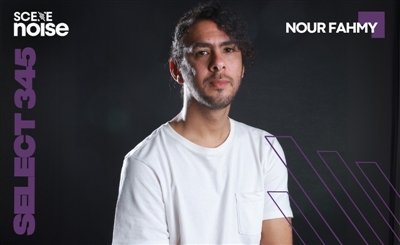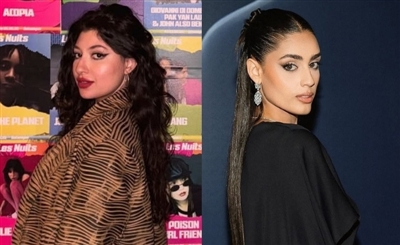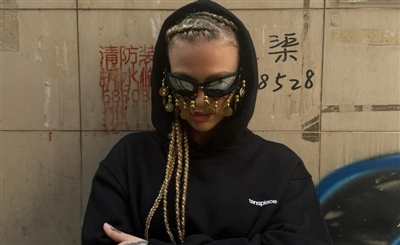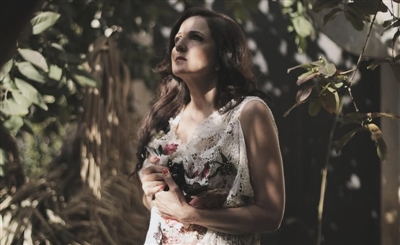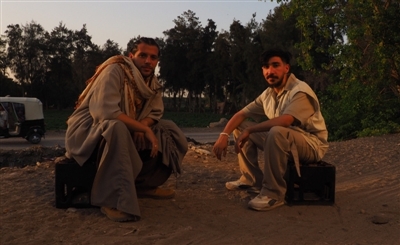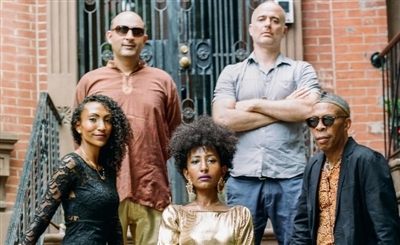SADZIKY: The Tunisian/Belgian DJ That Can Turn Om Kalthoum Into A Dancefloor Weapon
We spoke to the Tunisian femme fatale SADZIKY about her beginnings, influences, and her acclaimed party series 'Souk Sessions'.
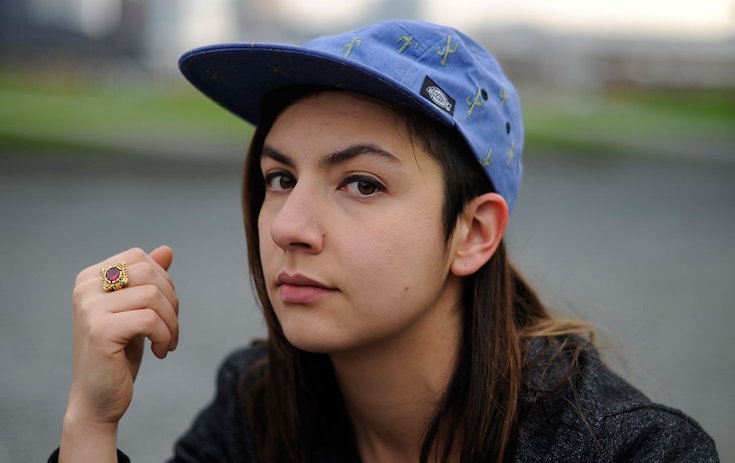
Sara Dziri is a Tunisian/Belgian DJ and producer with a lot of Arab charm up her sleeve. She is also the founder of Souk Sessions, a party that takes place around the world and brings Arab electronic music into focus. While being a female and pursuing a career in music may have its hurdles, Sara has shown no signs of slowing down, all while drawing artistic inspiration from her heritage.
Uniquely, Sara reconstructs classical Arabic songs like Om Kalthoum’s Enta Omry and transforms them into club bangers. A stylish idea and a risk that only few techno artists are willing to take these days. Through her career and musical development, her style has come - tantalisingly - into focus, without shedding any of the mystique she has developed so far.What got you into dance music?
Going to my first techno party when I was about 19 years old and completely falling in love with what I heard. Before that I did different things like drawing, theatre, writing, etc. but then naturally evolved into playing and making dance music.
How was Souk Sessions originally created?
About one and a half years ago I traveled to Toronto to live there for a year. When there I noticed there wasn’t really a place for the kind of sound I play. I decided to start throwing parties where I would play and invite other DJs that match the sound and idea of Souk Sessions. What started as a tough ride eventually became a big success in the city and beyond in just a few months.
Being a woman in the dance music industry, do you ever get less credibility as a DJ in contrast to males?
You’re definitely treated differently as a woman, usually not for the best. I especially experienced this when I was starting out: much less of an encouraging environment, it was hard to link with peers, weird reactions from people when I played or said that I played. For instance at Souk Sessions I more than once got the question if I work at the bar or ‘help out the guys from Souk.’ I do notice that after a few years this has gotten a lot better, but that’s maybe not only linked to my experience: times are a changin for women in the electronic music scene in general.
Would you ever consider playing in Egypt?
Definitely! Would love to!
What are your thoughts on the female artist scene in Egypt?
To be honest, I’m not super familiar with the current Egyptian scene, but there’s definitely some noticeable female talent all over the Arab World.
What is the weirdest thing a fan has done for you at a live gig?
Someone straddling (doing a ‘grand écart’) and rolling around in front of the DJ booth when I was playing.
In your opinion, how does the Arab world need to boost their competitiveness in the dance scene?
Many more parties and festivals, boosting your local talent while also inviting international names. Don’t be afraid to give local talent a central place, they are very valuable to your scene in the long run.
You’ve lived in Tunisia, Belgium and Canada. Where is your favorite audience?
I remember one hell of a Souk Sessions night in Toronto. The venue was packed with people from all over - the Arab diaspora, Caucasian and Asian - and for about two hours the ground was literally shaking from all the people dancing and screaming. That was such an amazing rush of adrenaline.
Who are your current influences?
Hmm, hard to say, since there’s so many. Lately I’ve been listening to a lot of stuff on the labels of Get Physical and Mobilee. I have a lot of admiration for the South African house scene. When producing I draw inspiration from Arabic music icons like Oum Kalthoum and North African folk rhythms.
Do you have any upcoming gigs we should know about?
On November 11th I’m playing the afterparty of Shadia Mansour in Belgium. Will be fun!
Head to Sadziky's Facebook for more updates and follow her on Soundcloud for more tunes.
- Previous Article Getting Abyusif
- Next Article The Wanton Bishops on the Manifestation of Success, Arabs on Drugs, and Saving Rock and Roll
Trending This Month
-
Jul 07, 2025



